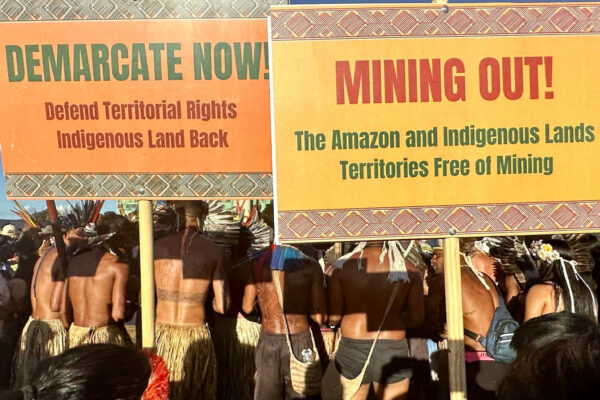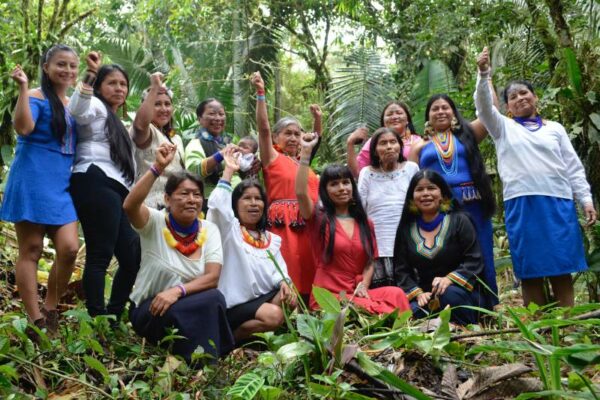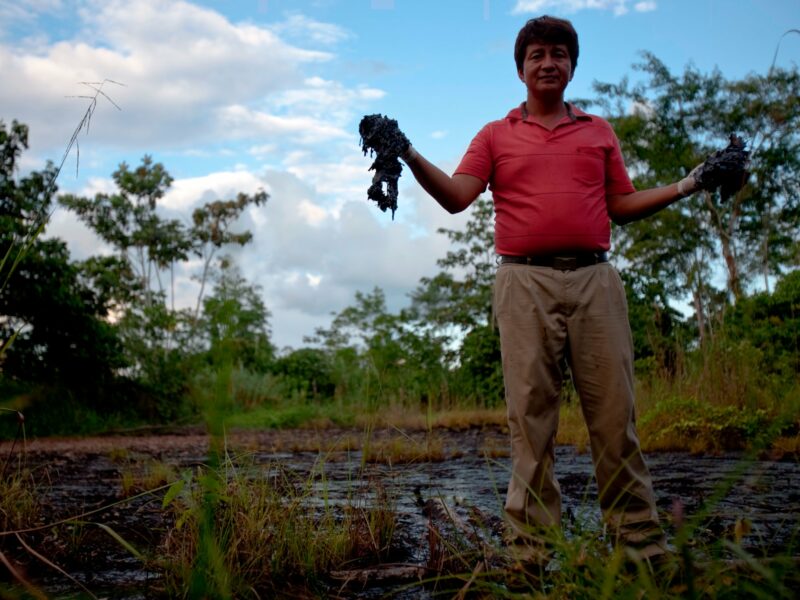Fifty scientists have submitted a letter to an epidemiology journal protesting a February statement from six scientists acting as consultants to ChevronTexaco that refuted recent peer-reviewed studies showing negative health effects of oil production activities in the Amazon.
The oil giant’s statement, which appeared in Ecuadorian newspapers and the company’s Web site in early February, argued that the studies contain a series of flaws, and the reported elevated rates of cancer, spontaneous abortion, and other problems likely stem from the region’s poor medical care and sanitation, among other factors. The company asked six scientists, including the founding editor of the journal Epidemiology, Ken Rothman of Boston University, to review the published data.
In response, 50 scientists from around the world have written a letter arguing that the company’s statement was a “blatant” attempt to influence an ongoing court case in Ecuador, in which residents are suing ChevronTexaco for allegedly polluting the region and endangering their health. The plaintiffs argue it will cost $6 billion to correct the environmental damage.
Arthur Frank of the Drexel University School of Public Health in Philadelphia, Penn., who signed the letter last week, said he thought it was inappropriate for scientists to critique research in the media, instead of submitting a letter to a peer-reviewed journal, where the authors could respond.
“Don’t take out an ad in a newspaper and put it on a Web site, attacking people for their science,” Frank told The Scientist. The fact that the company hired scientists to review the research is a symptom of a larger problem of “science for sale,” Frank added.
One of the letter’s cosigners is Richard Clapp, a Boston University scientist who recently came under fire when he tried to publish epidemiological data from IBM showing a higher rate of cancer among the company’s semiconductor employees.
The letter is slated to appear in the International Journal of Occupational and Environmental Health in a couple of weeks, said the journal’s editor, Joseph LaDou of the University of California School of Medicine in San Francisco—also one of the 50 cosigners. Scientists are “finally saying how fed up they’re getting with the corporate consultants,” he told The Scientist.
Since the early 1970s, oil companies have mined billions of barrels of crude oil from the Ecuadorian Amazon. A series of epidemiological studies have since shown that water bodies near these sites contain dangerous levels of total petroleum hydrocarbon. Moreover, the studies showed that residents developed a higher-than-expected rate of cancer and cancer deaths, nasal and throat irritation, and spontaneous abortions.
The consultants for ChevronTexaco argued that the studies contain serious methodological flaws, and do not establish a causative link between oil production and health problems. Moreover, they “ignore potentially important differences between these types of communities in factors other than oil contamination,” writes Lowell Sever of the University of Texas, Houston, such as poor sanitation and medical care.
Indeed, ChevronTexaco spokesman Jeffrey Moore told The Scientist that as part of the trial, investigators have tested the soil, sediment, and water from 122 sites. Results show these sites pose no risk to human health from oil activities, although there are signs of contamination by fecal matter, he said.
“The studies promoted by the plaintiffs lawyers are flawed, biased, and none of them establish a credible link between oil exposure and the alleged health problems of the region,” Moore said.
Moore did not deny that the company used its critique to influence public opinion during the court case and argued that the plaintiffs are using the published studies to do the same. “Plaintiffs’ lawyers in this case have spent more than a decade trying to mislead the press, the public, and the courts,” he said. He did not respond to questions regarding how the company compensated the reviewers.
Anna-Karin Hurtig at Umea University in Sweden, the lead author of one of the critiqued studies that found elevated cancer rates among people living near oil fields in the Amazon, told The Scientist that she welcomes criticism of her work—but in the research literature, please.
“All epidemiological studies have their weaknesses, and everyone familiar with epidemiology knows that,” Hurtig said. “Critique presented outside its context is misleading and confusing.”
Indeed, one of the company’s criticisms is that the research may be influenced by recall bias. While recall bias is a potential limitation of many studies, it doesn’t necessarily affect the outcome, Frank noted—for instance, people are very unlikely to forget when they had a spontaneous abortion.
ChevronTexaco’s other reviewers included Laura Green of the Massachusetts Institute of Technology, David Hewitt of the Center for Toxicology and Environmental Health in Arkansas, Alvaro Felipe Davalos Perez of Ecuador, and Felix Arellano of the International Society for Pharmacoepidemiology.
Links for this article
“Experts say health studies promoted by lawyers and activists are flawed, biased and inconclusive,” Texaco press release, February 2, 2005.
http://www.texaco.com/sitelets/ecuador/en/legal_archives/press/ 2005-02-02_health_news.asp
Epidemiology
http://www.epidem.com/pt/re/epidemiology/home.htm
Boston University
http://www.bu.edu
A. McCook, “IBM data seeing light of day,” The Scientist, December 20, 2004.
http://www.the-scientist.com/2004/12/20/13/3
International Journal of Occupational and Environmental Health
http://www.ijoeh.com/
AK Hurtig et al., “Geographical differences in cancer incidence in the Amazon basin of Ecuador in relation to residence near oil fields,” Int J Epidemiol, 31:1021-7, October 2002.
[PubMed Abstract]
M. San Sebastian et al, “Exposures and cancer incidence near oil fields in the Amazon basin of Ecuador,” Occup Environ Med, 58:5127-22, August 2001.
[PubMed Abstract]
M. San Sebastian et al., “Health of women living near oil wells and oil production stations in the Amazon region of Ecuador,” Rev Panam Salud Publica, 9:375-84, June 2001.
[PubMed Abstract]
M. San Sebastian et al., “Outcomes of pregnancy among women living in the proximity of oil fields in the Amazon basin of Ecuador,” Int J Occup Environ Health, 8:213-9, Oct–Dec 2002.
[PubMed Abstract]
Anna-Karin Hurtig
http://www.umu.se/phmed/epidemi/personal/annakarin_hurtig.html
Laura Green
http://www.cambridgeenvironmental.com/people/green/resume.pdf













